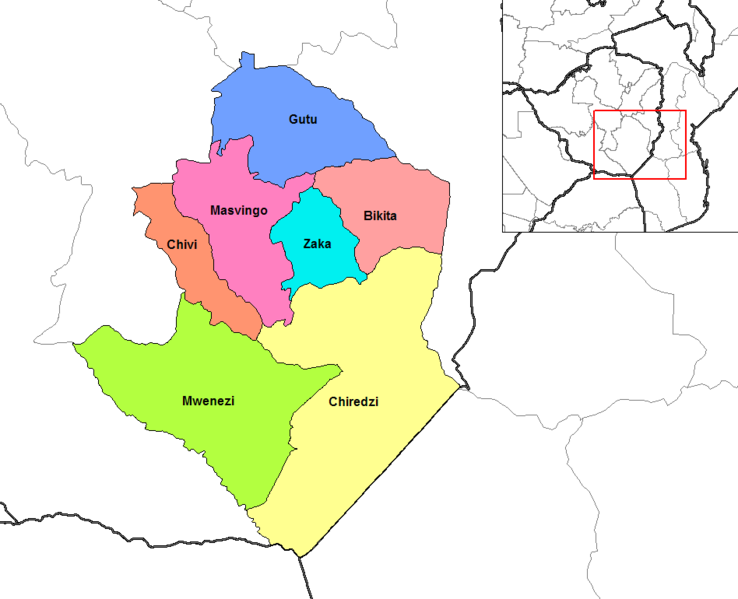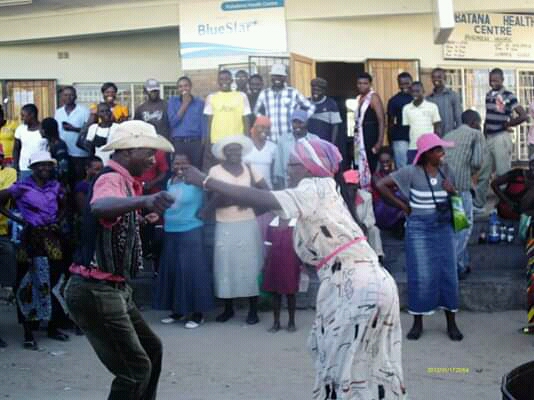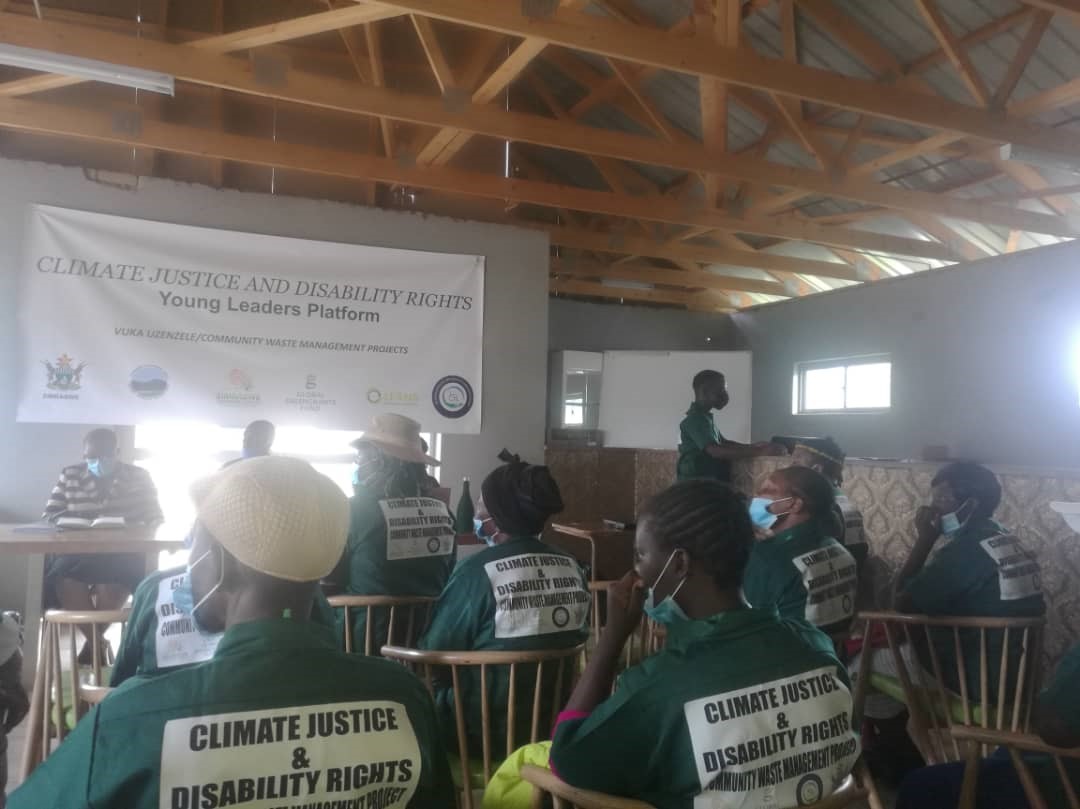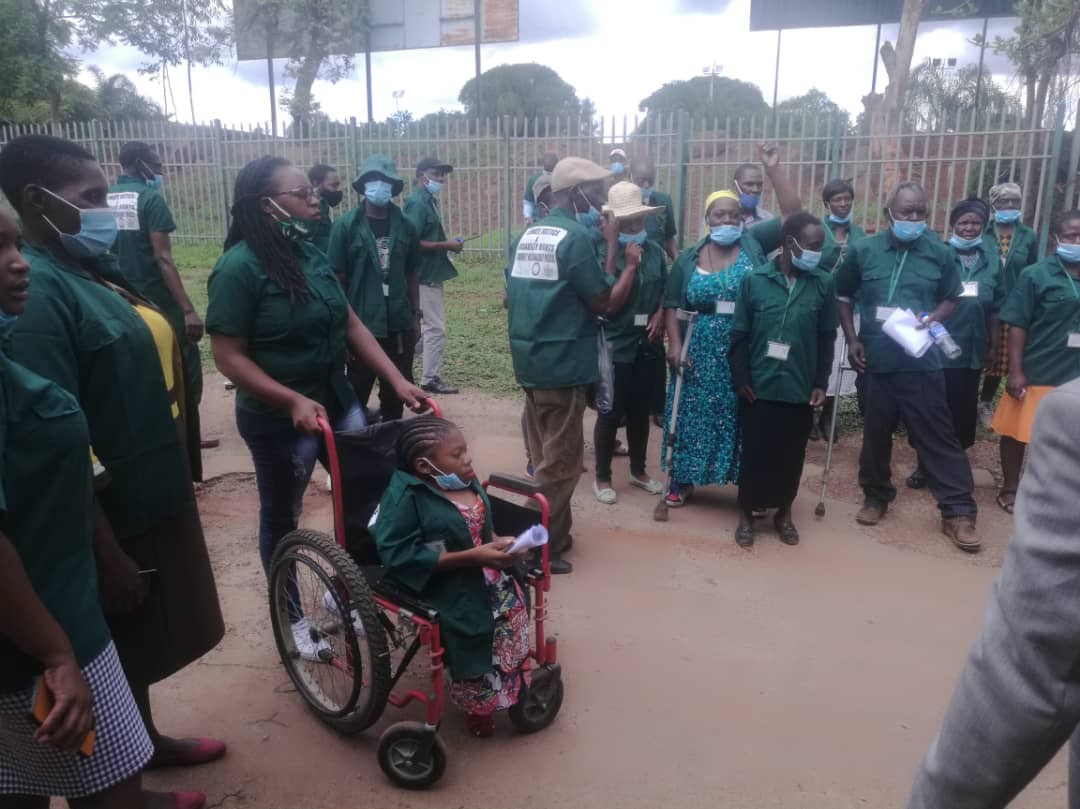How one grantee is making sure everyone has a voice in the climate conversation
When it comes to climate change, environmental sustainability and policy decisions, we often think of government entities, politicians, and rooms with long conference tables.
The Zimbabwe Sunshine Group (ZSG) is seeking to change that.
ZSG, a Greengrants grantee, wants new spaces for youth and women to participate vibrantly in environmental sustainability and climate change discourse. The organization prides itself on finding new ways, including visual performance, to bring diverse voices into the protection of natural resources in the face of climate change.
Education, inclusion, and visual performance
In 2019, Global Greengrants Fund awarded ZSG a grant of $4,983 to develop inclusive climate change and environmental education programs in the Masvingo, Mashonaland Central, and Matebeland South provinces of Zimbabwe.

Farmers who live in the predominantly rural Masvingo province depend on natural resources for energy and their livelihoods, making them key stakeholders in the climate change conversation. The Masvingo province is extremely vulnerable to climate change, with high temperatures and erratic rainfall resulting in low crop yields, requiring women and children to walk long distances to fetch water. Yet, many lack knowledge on the topic despite the clear implications of harm to their livelihoods
Meanwhile, the Bindura and Gwanda provinces have high rates of youth unemployment and school absenteeism. While women and children are among the worst impacted by climate change, they lack access to key resource documents (only available in English), meetings, and decision-making spaces to understand and to express their unique concerns.
In response, ZSG implemented a program, the “Watch-Understand-Act”, to translate climate resource documents through physical theater and sign language. The documents were translated into native languages and the group put on visual presentations to ensure full inclusivity. Each presentation included at least four people with a hearing or speaking impairment to ensure that the disability community is included in the conversation.

In 2020, ZSG received another $5,000 from Global Greengrants Fund to train students on climate justice and disability rights by establishing an information-sharing platform for young people living with disabilities.
Not without us
Climate change disasters and pandemics alike disproportionately affect people living with disabilities. In Zimbabwe, many people are still suffering the effects of the deadly Cyclone Idai from 2019, in addition to the more recent coronavirus pandemic. The lockdown measures put in place by the government to stop the spread of COVID-19 failed to consider the circumstances of those with disabilities, halting essential services for people living with different health conditions.

ZSG developed a Disability Rights Young Leaders Platform to equip young leaders with knowledge on climate justice, disability rights, and activism, empowering them to become agents of change. The group “trained the trainers” at Danhiko College and Green Choice Waste Solution Organisation – Gwanda.

To represent people with disabilities, ZSG launched a petition, “Not Without Us – Kwete Tisipo”, which they submitted it to the Environmental Management Agency and the Department of Climate Change. The group also established an environmental justice and disability rights information sharing platform for young people living with disabilities.
We’re proud to support youth groups, such as The Zimbabwe Sunshine Group, who are working to make sure ALL people have a voice in the climate conversation.
